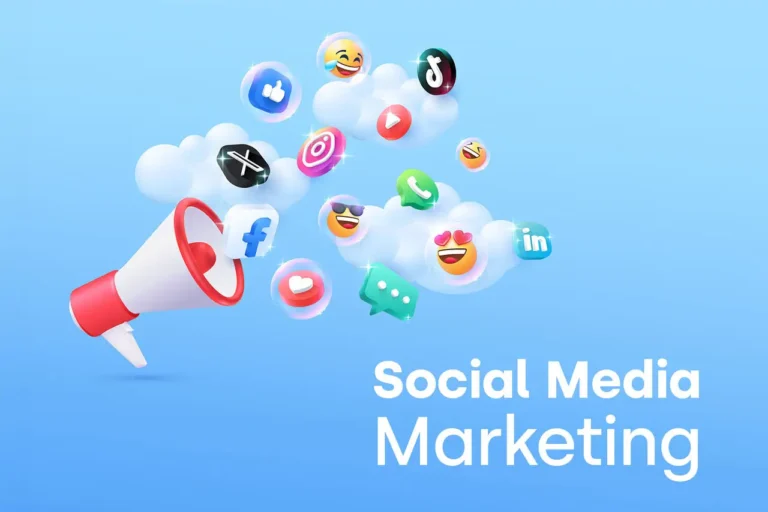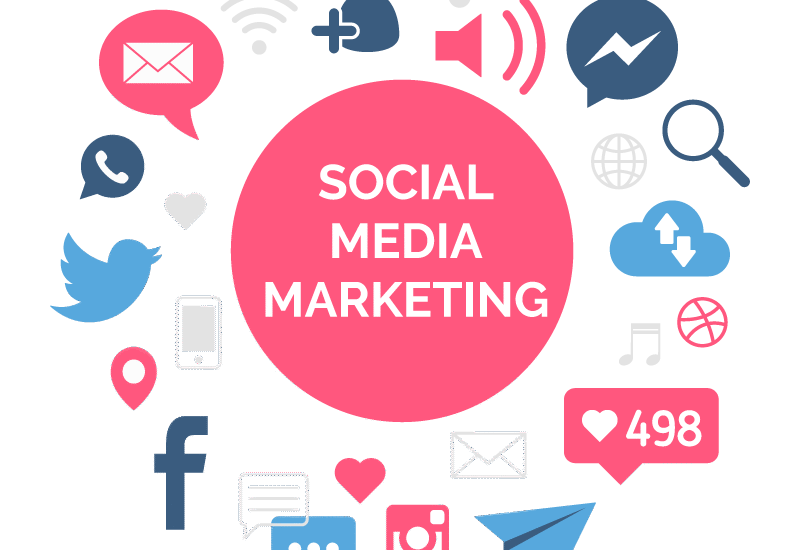SMM Services for Small Business & eCommerce: A Complete Guide
Social Media Marketing (SMM) provides small businesses and eCommerce brands with an affordable means of increasing brand recognition, consumer engagement, and sales. If you’re new to social media marketing, this easy-to-follow guide will explain the value of SMM services, successful tactics, and how they may support the expansion of your company.
Being active on social media is no longer an option in today’s digital-first industry; it is required. With billions of people scrolling through Facebook, Instagram, LinkedIn, TikTok, and YouTube every day, social media has emerged as one of the most potent platforms for businesses to engage with their target audience.

1. What is SMM (Social Media Marketing)?
Social media marketing (SMM) is the process of promoting your products, services, or brand on sites such as Facebook, Instagram, LinkedIn, Twitter (X), and TikTok. It combines organic marketing (publishing content and connecting with followers) and paid marketing (running ads to reach a specific audience).
SMM helps small businesses establish a local presence, whereas it increases product visibility and sales for eCommerce stores.
2. Benefits of SMM for Small Business & eCommerce
Social media provides distinct benefits that traditional advertising cannot match. Some of the top advantages are:
- Brand Awareness – Reach thousands of potential customers at a low cost.
- Website Traffic and Sales: Promote products directly and link to your eCommerce store or website.
- Cost-Effective Marketing: SMM costs less than TV, print, or radio commercials.
- Customer Engagement – Communicate with customers via comments, direct messaging, and interactive postings.
- Data-Driven Insights – Analytics tools assist you determine what works and what does not.
For example, an online apparel business can highlight new arrivals on Instagram, run targeted ads, and drive direct purchases using integrated “Shop Now” features.
3. Essential SMM Strategies
To get the most out of SMM, firms must have a defined strategy. Here are beginner-friendly tips:
- Content Planning & Scheduling – Use a content calendar to ensure constant posting.
- Hashtags – Use relevant hashtags (#SmallBusiness, #ShopLocal, #eCommerce) to increase visibility.
- Paid Ads – Create Facebook and Instagram ads to reach the ideal customers.
- Short-Form Content – Use Reels, Stories, and TikToks to capture people’s attention.
- Influencer Marketing – Collaborate with micro-influencers for genuine advertising.
For instance, a bakery can publish behind-the-scenes videos, promote special offers with hashtags, and run local advertisements to entice nearby clients.
4. SMM Platforms for Business Growth
Not all platforms operate in the same way. Choosing the proper one relies on the goals:
- Facebook and Instagram are ideal for both small businesses and eCommerce, with strong ad and shopping integration.
- LinkedIn is ideal for B2B businesses and professionals.
- Twitter (X) is ideal for real-time updates and trending topics.
- TikTok and YouTube are excellent platforms for creating compelling video content and tutorials.
If you run an eCommerce brand, Instagram and TikTok are ideal for presenting products. Local businesses may profit more from Facebook and LinkedIn.
5. SMM Tools Every Business Should Use
SMM becomes easy with the correct tools.
- Canva – Make professional graphics and posts.
- Buffer/Hootsuite – Schedule and manage posts across many platforms.
- Meta Business Suite – lets you manage ads and track data for Facebook and Instagram.
- Google Analytics – Monitor social media traffic and conversions.
These tools save time and help to guarantee that your campaigns are consistent.
6. SMM for Small Businesses vs. Ecommerce
While both benefit from social media, their objectives differ:
Small businesses
- Concentrate on local targeting (city or region).
- Establish community bonds and trust.
- Encourage repeat business by engaging with your customers.
Ecommerce businesses
- Focus on product promotion and sales channels.
- Retargeting advertisements can help you reach abandoned cart users.
- Use shoppable posts on Instagram and Facebook.
A local coffee shop may utilise Facebook for neighbourhood events, while an Ecommerce firm selling fitness gear may run Instagram advertisements targeting fitness fanatics globally.
7. Measuring SMM Success
To know if your strategy is working, track these essential metrics:
- Reach & Impressions – How many people notice your posts.
- Engagement – Clicks, shares, comments, and likes.
- Conversions – Sales, leads, or sign-ups from social media campaigns.
- ROI (Return on Investment) is the revenue generated in comparison to the amount spent on advertising.
Review analytics frequently to improve your approach. Make more of a particular kind of post if it generates more clicks or sales.
Conclusion
For small businesses and eCommerce brands, SMM services are essential for growth. From increasing visibility to building trust and driving sales, social media marketing provides endless opportunities to reach your target audience.
Start small: choose the right platform, create engaging content, and test paid campaigns. Over time, with consistent effort and the right strategies, social media can become your most powerful tool for business success.
Ready to take your business to the next level? Invest in professional SMM services today and unlock the full potential of social media.
Related blog: SEO Strategies for Small Business & eCommerce
Outsource:https://en.wikipedia.org/wiki/Social_media_marketing

